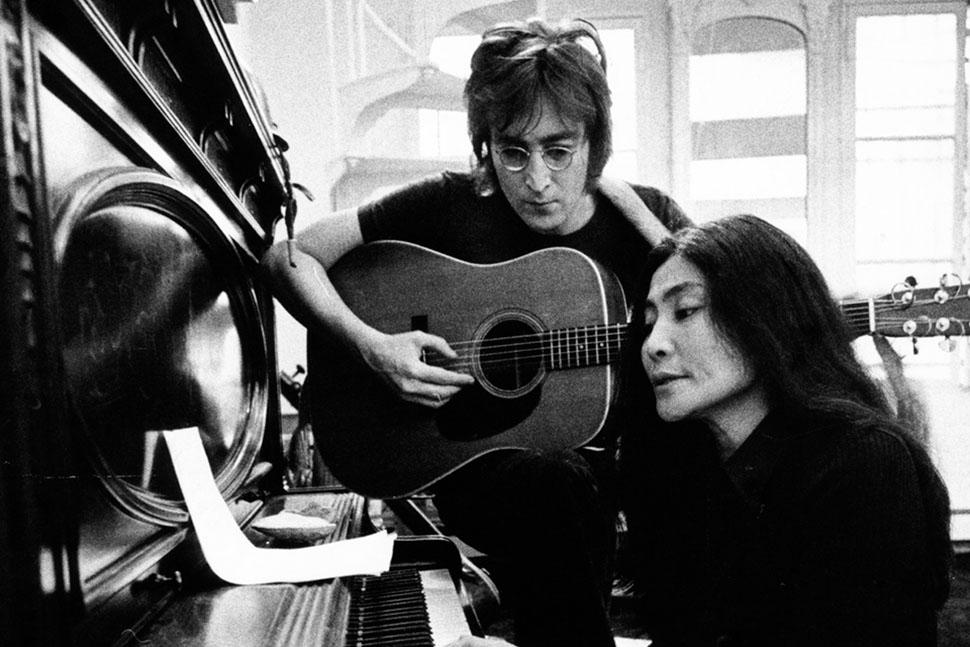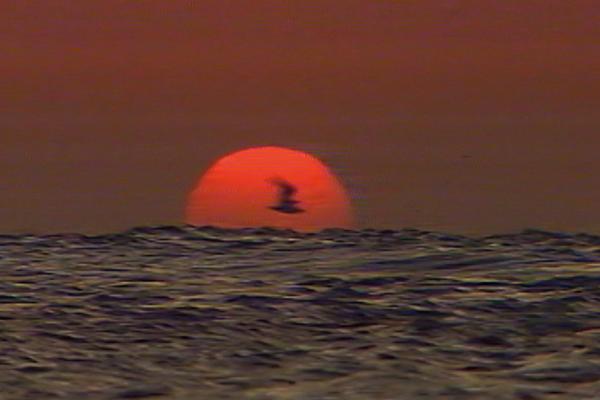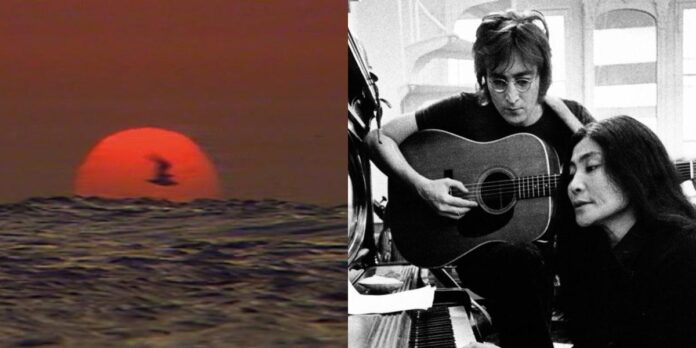ON THIS PAGE:
- One to One: John & Yoko
- Israel Palestina på Svensk TV 1958-1989
One to One: John & Yoko
United Kingdom, 2024. Directed by Kevin Macdonald, Sam Rice-Edwards. Running time 100′
In 1972, John Lennon and Yoko Ono moved to New York, a city that allowed them to live much more freely than London, where John could not walk down the street, and Yoko was frequently insulted because she was considered the cause of the Beatles’ break-up. They then left their opulent mansion for a small flat in the Greenwich Village, where they would have lived for eighteen months, mostly spent in bed with the TV set permanently on. Both were fascinated by the continuous flow of information passing through the American cathode tube in the early 1970s. It was a window into the world that the experienced documentary filmmaker Kevin MacDonald, always good at capturing the gist of the story, uses to describe what happened in that momentous year and a half in the US. One to One: John & Yoko revolves around an event that only experienced Lennon exegetes know about, namely the only full-length concert the former Beatles did after leaving the band, the first since the four of Liverpool decided to stop touring in 1966. He did it for a good cause, which was to raise money to support the Willowbrook State School for Retarded Children, an institution where hundreds of children lived in inhuman conditions. MacDonald, assisted by Sam Rice-Edwards, recounts the couple’s relentless political and social engagement, activists who were always careful to discern the right cause. In the meantime, there was the escalation of the Vietnam War, the beginning of the Watergate scandal and many other things in the background that characterised a short and very intense period. John and Yoko would have split for a year and a half at the end of these eighteen months. Lennon called it his Lost Weekend, like the Billy Wilder movie. But that is another story.
Alessandro De Simone

Israel Palestina på Svensk TV 1958-1989
From 1958 to 1989, public service television in Sweden was unique and under the monopoly of the state company Sveriges Television or SVT, whose reporters sent to Israel and Palestine documented everything from daily life to international crises. Using unpublished audiovisual material hidden in the archives of Swedish public television, including interviews and footage of visits by Yasser Arafat, David Ben-Gurion, and Abba Eban, director Göran Hugo Olsson (The Black Power Mixtape 1967-1975) carries out an in-depth examination of the context surrounding the Israeli-Palestinian situation. Israel Palestine On Swedish TV 1958-1989 is presented Out of Competition at the 81st Venice International Film Festival. Olsson is sensitive to social and political issues and attentive to his audience. Like a few others, he tells the story of a changing media landscape and offers the tools to understand a conflict that influences our time. ‘It is a montage documentary that collects in chronological order many of the television reports aired by Swedish TV from the moment of its creation in ‘58 until “89, a television that has always prided itself on pursuing the most complete objectivity possible,” explains artistic director Alberto Barbera. ’The result of this montage film is an impressive summary of the history of the unresolved conflict between Israelis and Palestinians, which these days takes on even greater interest and value.
Vania Amitrano


